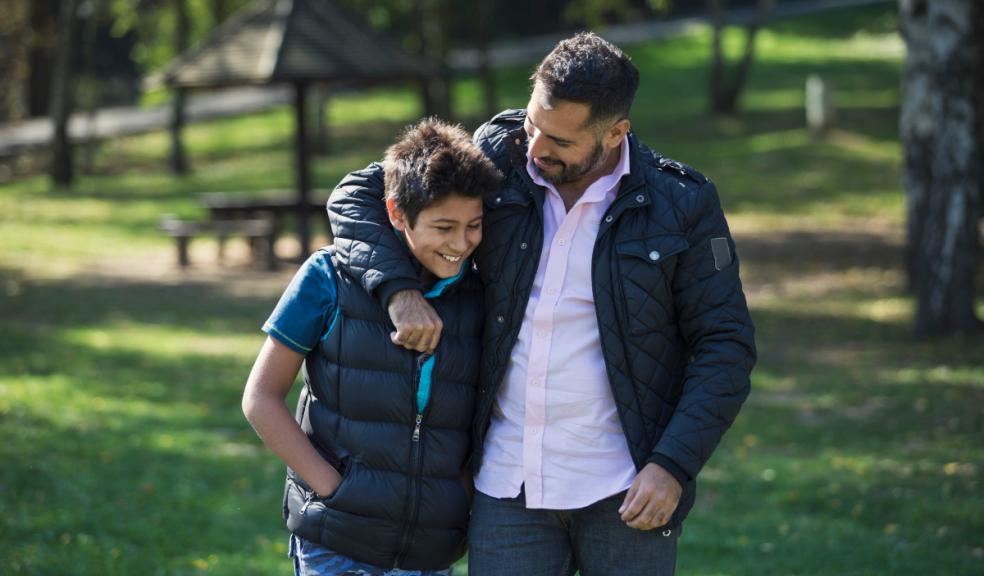
More than half of children have 'fear of failure' – 10 ways to help them beat it
It's natural for parents to want their children to pursue their dreams. But sadly, a fear of failure is holding many youngsters back, and often they don't even try to achieve their goals because they're too frightened they won't succeed.
New research has found that more than half (57%) of children aged four to 12 years old have a fear of failure, and that fear has prevented almost a third (30%) from trying new pursuits and hobbies.
"Children today are not so much risk-averse as risk-avoidant," says child psychologist Dr Amanda Gummer, of Fundamentally Children . "Sadly, fear of failure can prevent children from trying new ventures and pursuing their dreams, so the fear can become self-fulfilling."
And despite 96% of parents recognising that learning to deal with failure is a useful skill, the Robinsons Fruit Shoot study found only 64% do their best to prevent their child experiencing any failure.
"It's important that children are encouraged to try new things and explore their passions, even if that means there's the risk of 'failure' or not being very good," says Gummer, who stresses that taking risks and learning how to deal with failure builds children's self-esteem, self-confidence and resilience.
Here are her top tips on how parents can help their children 'fail' better.
1. Be a role model
As your child's biggest role model, if you approach failure with gusto, your child is more likely to do the same. Try and make a joke of it – kids love slapstick humour and it will make them less worried about making mistakes. Showing children you can get annoyed about a mistake or failing but not letting it define you, will help give them a model of emotional resilience. Showing them you can own your mistakes, apologise for them if needed and move on is really valuable in helping your children keep a sense of perspective and realise no-one 's perfect.
2. Trust your child
By not jumping in too quickly to solve their problems, you'll give your child the chance to make mistakes and, importantly, learn they can handle whatever life throws at them.
3. Teach them to win and lose well
Encouraging friendly competition through board games and sports will give your child experience of failure, so they can learn to successfully manage their feelings. It's much better to learn to deal with failure when the consequences are relatively minor. Acknowledging the role luck plays in successes and failure is helpful, while also appreciating the role skill and hard work play will give children a framework for judging their wins and losses and enable them to learn from mistakes, but not internalise losses that were just down to luck or circumstances outside their control.
4. Teach perseverance
Opportunities to succeed during play will help your child discover failure is just part of learning and, through perseverance, they can achieve something to be proud of.
5. Talk it through
Talking your child through their experiences of failure, how it made them feel and their options for handling it, will help them make sense of real situations and learn how to handle them.
6. Discuss failure in stories
When reading together, discuss examples of failure that come up in the story, talking about how the characters might be feeling and the different ways they could deal with the situation.
7. Praise effort
Giving your child genuine, specific praise for the efforts they make encourages them to keep trying, even if they don't succeed the first time.
8. Be honest about your failures
Talk to your children about mistakes you've made and lessons you've learned, to help them understand everyone makes mistakes and it's part of life – and doesn't make them a failure.
9. Encourage outdoor play
Getting out in nature or down to your local playground will give your child lots of opportunities for 'risky' play – letting them test their limits and helping develop resilience.
10. Give them the chance to try
It's about the process, not the end result , so let them help with baking or cooking, for example, even if they don't do it perfectly. Teach them mastery takes hours of practice and is rarely without setbacks. The world is full of successful people who have had big setbacks – JK Rowling, David Beckham, Alan Sugar etc. Giving children these role models will show them setbacks are part of the journey and not an end it itself. This can really help children develop the tenacity and confidence to keep going.













